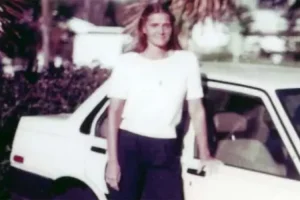Cultural Coffee Hour discusses STEM issues
November 6, 2014
Every week, there is a Cultural Coffee Hour that brings international students and scholars together with faculty to learn more about international and cultural differences. They discuss important and relevant globally related topics, and this week’s subject was Science, Technology, Engineering and Math (STEM).
Layla Khalili, a student at UW- La Crosse, gave her presentation on prosthetics and weighed the pros and cons of these artificial limbs. The innovation of prosthetics has immensely progressed seeing that scientists can now make prosthetics look un-artificial by making hair grow on limbs and even freckles and moles appear.
“Science is getting a lot better and becoming more accessible which benefits individuals in need of prosthetics,” said Khalili.
The first documented prosthetic was a toe that was found on a mummy over 3,000 years ago, which says a lot about the progress of prosthetics throughout history. Losing a vital organ or limb is devastating to individuals, and with science progressing, people are becoming more acceptable to the idea of getting a prosthetic.
“You don’t just get a fake arm and get sent off into society; you have to go to multiple sessions of therapy and become adjusted to such a new idea you thought would never happen,” added Khalili.
The next topic was about the huge electricity shortage in Chile given by Jessica Blatter. Patagonia is experiencing a tremendous deficiency in electricity, which led to a country-wide debate about whether to install huge hydro-electric systems throughout the waterways In Patagonia in order to put an end to this shortage. This innovation would use flowing water from dams and would ultimately have a devastating impact on the area’s ecosystem.
“When I first heard about the idea of this project, I immediately was against it,” said Blatter. “Patagonia is a very beautiful, untouched region with immense waterways and reservoirs that are crucial to major waterways including oceans, so once these vital waterways are destroyed, they are destroyed forever. There’s no reversing the damage.”
Most recently, the Chilean government has rejected what would have been the biggest energy project in the country’s history, and environmentalists, to say the least, are celebrating this decision.
“I think they need to find alternatives to hydro-electric power, like fossil fuels or other resources that wouldn’t put such a widespread devastation on such an untouched region,” added a student majoring in biology.
The discussions were so dynamic throughout the entire presentations that individuals got a taste of what’s happening outside of the US and learned about the problems that they are facing, which they may not have known otherwise.
“To have students share their perspective and to inform students who aren’t aware of global phenomenon has been my goal with these weekly Cultural Coffee Hour sessions,” said Susan Pham, Assistant Director for Study Abroad.





